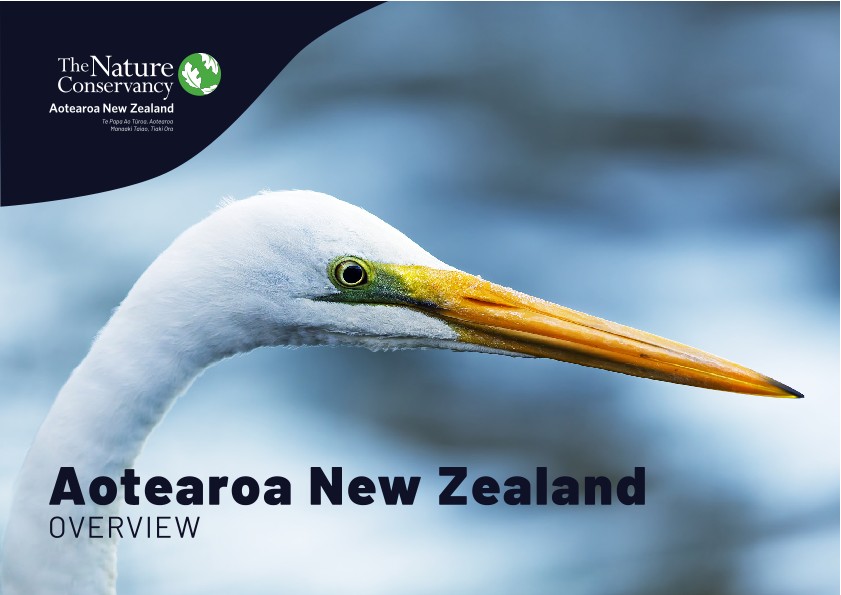Our Work in New Zealand
The Nature Conservancy is well-positioned to support Aotearoa New Zealand’s efforts to achieve a greater conservation vision for both nature and people.
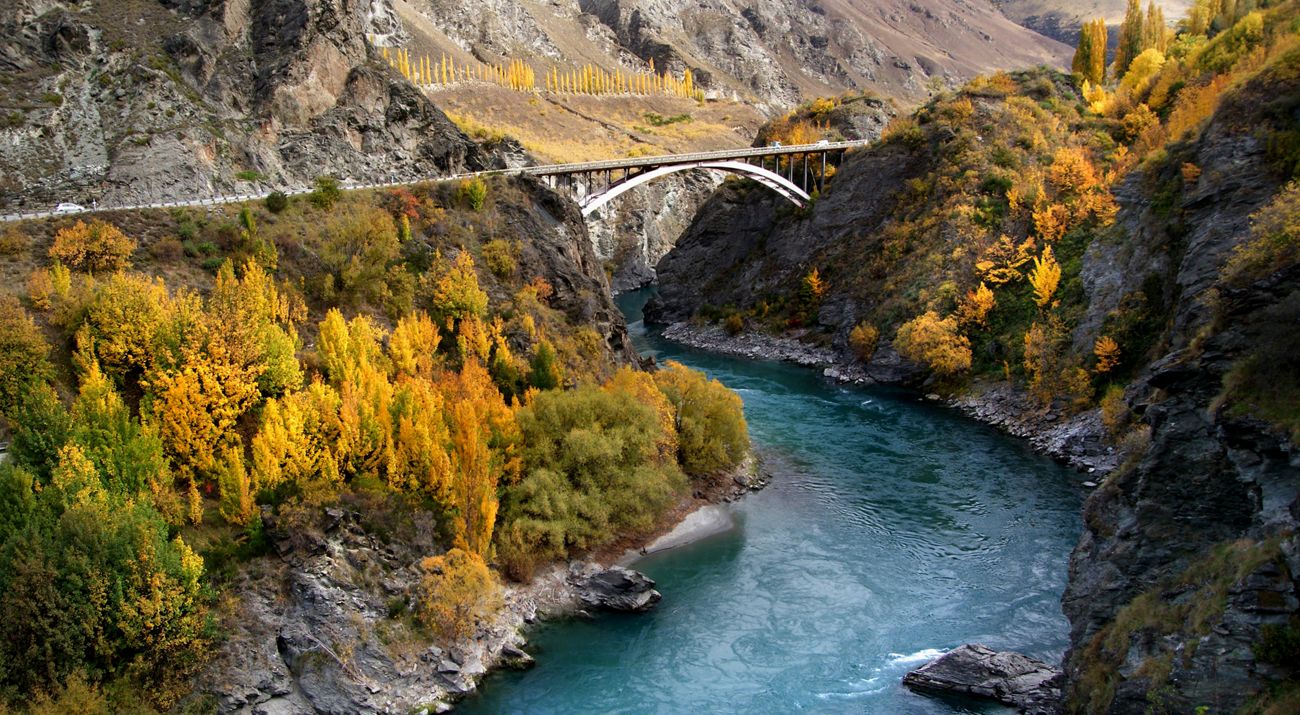
- Switch to:
- Overview
- Our Approach
- Work on the Ground
- In the News
Support Our Work in Aotearoa New Zealand
DONATE NOWOverview
Aotearoa New Zealand has a global reputation as a tourism, lifestyle and agricultural mecca, with snow-covered mountains, beautiful beaches, sparkling waters and fertile soils. Having evolved in isolation for more than 80 million years, Aotearoa New Zealand is a global hotspot of biodiversity and is home to a huge array of species found nowhere else on Earth.
Aotearoa New Zealand was the last large landmass in the world to be settled by humans. Introductions of invasive species; widespread forest and wetland clearance; increasingly intensive agriculture, horticulture and forestry; residential and commercial development; tourism and population growth; and over-use of natural resources have contributed to a stark decline in biodiversity and increasing vulnerability to climate change impacts, social and cultural decline. Over the last 750 years, more than 80 species have become extinct and around 1,000 species of plants and animals are now considered threatened with ongoing population decline and extinction.
But Aotearoa New Zealand has a lot to fight for, and it has a role to play in innovation, community action, conservation science and invasive species management as we face the dual crises of biodiversity loss and climate change on a global scale.

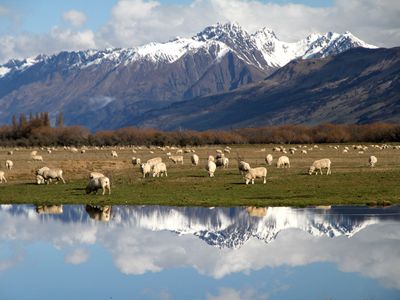
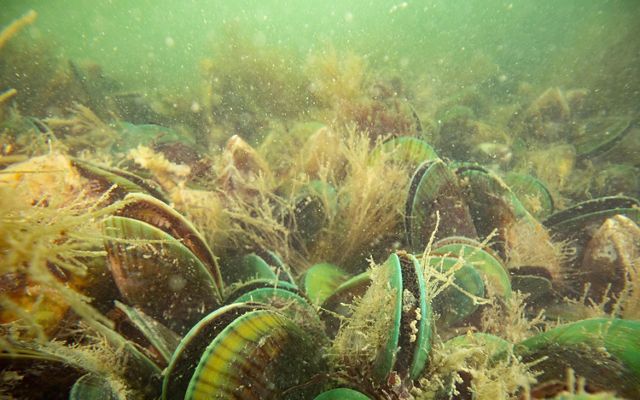

The Nature Conservancy (TNC) recognizes the conservation significance of New Zealand. Since 2018, TNC has been working with local and central government, local communities, iwi leaders, businesses and conservation groups on science and technology innovations, capacity building and capability at the community level, funding applications and expertise, strategic leadership and a global perspective on the issues faced.
Our work in Aotearoa New Zealand is driven by a vision of healthy, resilient land, water and oceans, and of thriving communities, cultures and economies. Integral to TNC’s approach is our relationship with Māori, and we acknowledge their standing as key partners and leaders across the conservation sector.
TNC’s science and global conservation expertise offer ways to address the landscape-scale challenges ahead through the provision of sustainable food and water, the protection of lands, oceans and waters, and through mitigating and adapting to climate change. We offer a suite of solution-focused financial tools for sustainable conservation funding and a commitment to engaging diverse stakeholders around common goals. TNC also works at the government level, as well as the community level, championing change and providing breakthrough tools and ideas.
Our 2023 Aotearoa New Zealand Impact Report
Explore NowOur Approach
TNC’s objectives for its work in New Zealand are to:
- Amplify and share knowledge for more effective conservation management;
- Develop innovative conservation financing tools;
- Build capability and capacity in conservation and community leadership;
- Incentivize behavior change toward sustainable practices, and;
- Demonstrate projects with the potential for impacts at whole landscape and seascape levels.
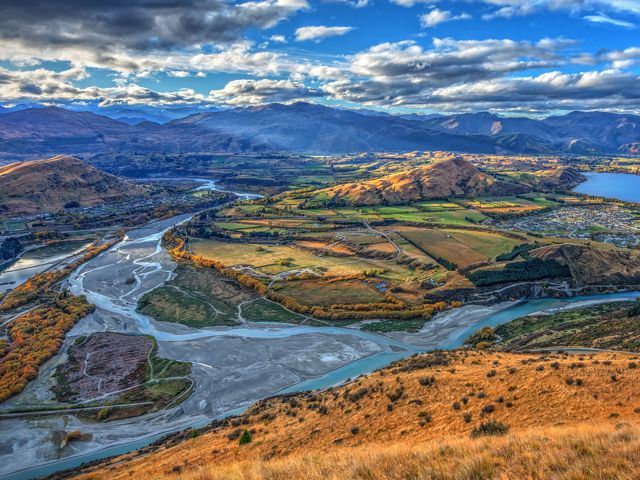
Work on the Ground
TNC works with local and central government, local communities, iwi leaders, businesses and conservation groups, with a focus on innovative projects that offer significant impacts and can be applied elsewhere.
We work with local conservation groups and organizations to support their mahi and offer the support they need to achieve their outcomes—and more. It is important to TNC that the projects we focus on have the support of manawhenua and the local community and that we offer long-term benefits to nature and people.
TNC currently oversees a range of projects in both North and South Islands, including a blue carbon pilot; shellfish reef restoration in the Hauraki Gulf; Land for Life—an afforestation and regenerative agriculture project in the Hawke's Bay; and the Kotahitanga mō te Taiao Alliance in the top of the South Island.
-
Shellfish Restoration in the Hauraki Gulf
In the Hauraki Gulf, Aotearoa New Zealand’s busiest body of water, we’re supporting efforts to restore shellfish reefs that have been lost through decades of sediment runoff, trawler fishing and extensive dredging. Read more
-
Blue Carbon
Our Blue Carbon project is investigating the potential for coastal wetland restoration that could generate carbon and climate resilience credits. Read more
-
Collaborative Agriculture
Our Land for Life program in Hawke's Bay is partnering with Hawke's Bay Regional Council and private landowners to plant trees on unstable land, capture carbon and prevent erosion. Read more
-
The Kotahitanga mō te Taiao Alliance
In the South Island, we support collective landscape-scale conservation through the Kotahitanga mō te Taiao Alliance—an iwi, council and government alliance focused on delivering conservation outcomes in alignment with its strategic plan. Read more
-
Waikato River Catchments
In the Waikato—one of the North Island’s most intensively farmed and modified landscapes—we are working with many stakeholders and iwi to explore opportunities for the Waikato River to enhance its freshwater, cultural, social and biodiversity values. Read more
-
Pacific Island Communities
We are also conscious of the greater Pacific Islands Community we are a part of and have been working with women’s groups in Solomon Islands to help develop alternative livelihoods for communities that support and benefit nature—such as an education venture focused on critically endangered hawksbill turtles. Read more
-
Conservation Leaders Training
TNC is building capability across the conservation sector through its Conservation Leaders training program, bringing internationally renowned trainers from Australia to facilitate learning in the Conservation Standards adaptive planning process. This program has the intention of building a cohort of coaches within New Zealand to support an internationally trusted planning process, thus improving project success and donor confidence. Read More
-
Big plans for dams and trees
Bay Buzz | Mar 14, 2025
The ‘Land for Life’ programme will develop, demonstrate and then help pastoral farmers implement a holistic farming approach that is both environmentally and financially sustainable for the long term. Read More
-
Bay Boosters: Amazing Mollusks
The Nature Conservancy Magazine | Feb 14, 2025
The Nature Conservancy is working with Indigenous Māori people and other partners to bring back the mussels, which have been decimated by decades of overfishing and agricultural runoff. Read More
-
Photo Contest Winners
The Post | Dec 17, 2024
Photographer Crystal Richardson from Wellington is one of the winners in The Nature Conservancy’s 2024 Oceania Nature Photo Contest. Read More
-
Dotterel’s Close Encounter with Ute Highlighted in Photo
Kapiti News | Dec 13, 2024
We received nearly 400 entries from New Zealand for the Oceania photo contest, highlighting our unique biodiversity. Read More
-
New Zealand Photographers Win in Oceania Contest
The Nature Conservancy | Dec 11, 2024
Nearly 400 entries came from New Zealand and 1220 from Australia for the competition which highlights the unique biodiversity of Oceania. Read More
-
Farmers turn ‘crap’ paddocks into profit with Land for Life programme
Hawkes Bay Today | Dec 10, 2024
Agriculture Minister Todd McClay said the programme had been successful and was expanding to 100 farms regionally, with the goal to reach 300 in the coming years. Read More
-
Land for Life gets boost to hasten regional farm recovery
Farmers Weekly | Dec 05, 2024
The government has contributed almost a million dollars into the Land for Life remediation programme in Hawke’s Bay in a bid to hasten regional farm recovery and resilience to future weather events. Read More
-
Land for Life Receives $995,000 to Tackle Erosion and Climate Resilience
The Nature Conservancy | Dec 04, 2024
With the support of the New Zealand Government, Land for Life aims to validate and scale up its erosion management model, benefiting farmers and the environment alike. Read More
-
Nature Photo Contest
The Post | Nov 04, 2024
The Nature Conservancy’s nature photo contest is back, with more than NZ$15,000 worth of prizes up for grabs. Read More
-
2024 Oceania Nature Photo Contest Now Open
The Nature Conservancy | Sep 24, 2024
The Nature Conservancy’s nature photo contest is back and is open to people passionate about nature, amateur as well as professional photographers, with more than NZ$15,000 worth of prizes up for grabs. Read More
-
Coastal restoration could be a crucial carbon sink
RNZ | Sep 10, 2024
Olya Albot spoke to Kathryn Ryan about the potential for blue carbon credits to support restoring coastal wetlands to increase community resilience to climate change, alongside Phoebe Stewart-Sinclair NIWA. Read More
-
New Research Report—Developing New Zealand Blue Carbon Projects
The Nature Conservancy | Sep 02, 2024
A comprehensive research report into coastal wetland blue carbon has identified a range of actions that can help accelerate coastal wetland restoration in New Zealand. Read More
-
How back to nature benefits business
NZ Herald | Aug 19, 2024
The Z Energy Biodiversity Fund also supports TNC’s Coastal Wetland Programme investigating how Aotearoa New Zealand’s coastal wetlands can help be restored through sustainable financing mechanisms. Read More
-
Seven Million Kūtai (Mussels) to Restore Hauraki Gulf/Te Moananui-ā-Toi
The Nature Conservancy | Jul 30, 2024
Seven million kūtai (green-lipped mussels) have been deployed into the Hauraki Gulf/Te Moananui-ā-Toi/Tīkapa Moana in a bid to reverse the decades-long impacts of destructive fishing practices, invasive species, climate change and acidifying waters. Read More
-
Biodiversity benefits of seaweed and mussel farming
The Fish Site | May 27, 2024
A new international research project has found that seaweed and mussel farming can increase wild fish populations and bolster species diversity while also providing a sustainable food source for humans. Read More
-
Seaweed and Mussel Farming Increases Wild Fish Populations
The Nature Conservancy | May 27, 2024
A research project by the University of Auckland and the University of New England found mussel and seaweed farming has potential to provide habitat for marine species, as well as providing food for people. Read More
-
Mussel farms provide snapper with healthier diets than natural habitats
Newshub | May 27, 2024
New research shows snapper living in or around mussel farms in the Hauraki Gulf are eating more nutritious diets than those living in natural habitats. Read More
-
Conservation Leaders Gather in Nelson
The Nature Conservancy | May 21, 2024
Nelson hosted an important training event for New Zealand conservation leaders, who gathered in the city to learn how to tackle large, complex and urgent environmental challenges. Read More
-
Love from Leonardo DiCaprio—Celebrity fans lead to big jump in donations
RNZ | May 02, 2024
Celebrities talking about New Zealand's conservation efforts has been a boon for the birds, bringing in more than a million dollars in donations. Read More
-
Coastal Wetland Blue Carbon in Aotearoa New Zealand
TNC media release | Apr 16, 2024
Current Projects, Reflections and Recommendations for a Community of Practice Read More
-
The stuff of life—Carbon capture in our ocean ecosystems (podcast)
RNZ | Mar 20, 2024
The RNZ Voice of Tangaroa podcast talked to Te Wahapu o Waihī and Bay of Plenty Regional Council (from 13:00) about what restoring wetlands could mean locally. Read More
-
The stuff of life
NZ Geographic article | Mar 05, 2024
Oceans have unexplored potential to capture and store carbon dioxide from the atmosphere. Read More
-
Could Wetlands Provide Powerful Protection?
BayTrust | Feb 18, 2024
Only 10% of Aotearoa’s original wetlands remain intact—yet these diverse habitats may hold the key to protecting our coastal communities from climate change. Read More
-
$35K for BOP wetland climate change research
SunLive | Feb 16, 2024
Research is underway to determine how salt marshes and mangroves could protect Bay of Plenty’s coastline from climate change—and how a “resilience credit” could be bought and sold in future to encourage wetland restoration. Read More
-
Kura Paul-Burke, Prof. of Marine Science & Aquaculture, Waikato University
Radio Waatea | Feb 14, 2024
Professor Kura Paul-Burke, PhD spoke to Radio Waatea recently about the carbon sequestration potential of the salt marsh restoration in a new wetland that will be developed on the margins of the Waihī Estuary. Read More
-
Green for go on Land for Life
Farmer’s Weekly | Feb 06, 2024
Major land Hawke’s Bay remediation project gets nod from local, national authorities. Read More
-
Ground-breaking Blue Carbon Research Underway in Waihi Estuary
Media release | Jan 29, 2024
Te Wahapū o Waihī and Toi Moana Bay of Plenty Regional Council have partnered in a progressive blue carbon research project of international significance with The Nature Conservancy Aotearoa New Zealand. Read More
-
Sustainable Business and Finance: Solutions for the big problems
New Zealand Herald | Nov 08, 2023
Country Director Abbie Reynolds spoke to Bill Bennett about The Nature Conservancy Aotearoa New Zealand’s journey so far and how we’re building momentum. Read More
Download
Leveraging science and Indigenous knowledge to protect natural resources at scale.
DownloadREAD MORE
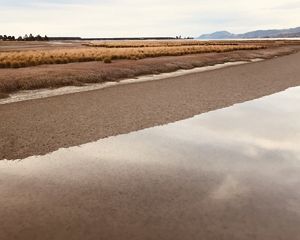
Advancing Blue Carbon in New Zealand's Coastal Wetlands
The Nature Conservancy in New Zealand is investigating the potential of wetland restoration that could generate carbon and climate resilience credits.
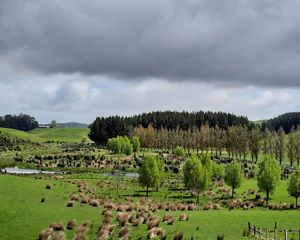
Land for Life: Supporting farmers while addressing environmental challenges in Hawke’s Bay
Hawke’s Bay is a key agricultural hub in New Zealand. But tough environmental challenges threaten the way of life for farmers and nature.
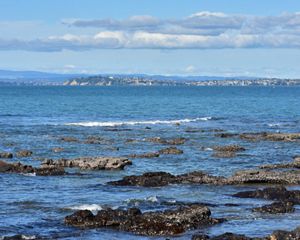
The Tīkapa Moana / Te Moananui-ā-Toi / Hauraki Gulf Challenge Fund
The science is clear—without ambitious and urgent action, the Hauraki Gulf’s future is uncertain.
